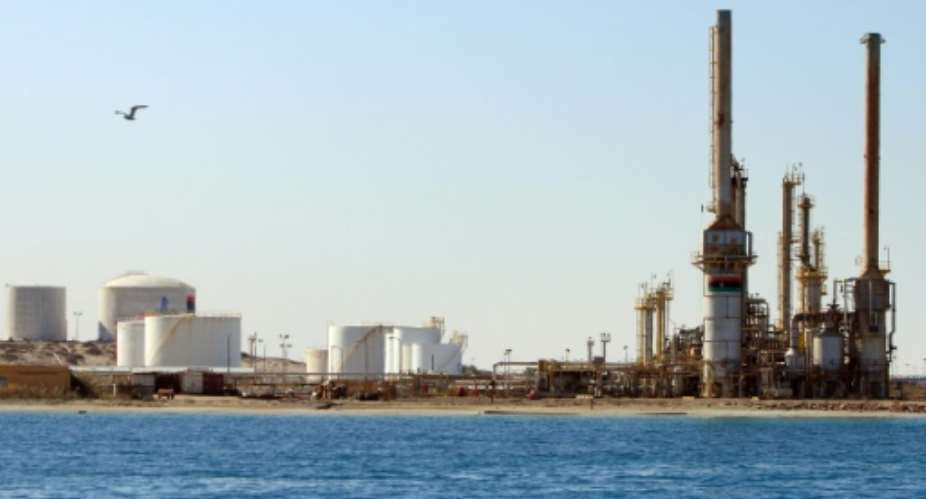Libya's oil revenues have more than tripled in 2017 despite violence and political instability, according to figures released Friday by the central bank.
The backbone of the North African country's economy, Libya's oil sector collapsed in the wake of the 2011 NATO-backed uprising that toppled longtime dictator Moamer Kadhafi.
Oil output fell from 1.6 million barrels per day to less than 500,000 bpd between 2014 and 2016 due to violence around production facilities and export terminals as rival militias fought for control.
Despite revenues surging to $14 billion (12 billion euros) in 2017, up from $4.8 billion the previous year, Friday's figures fall far short of the $50 billion Libyan crude sales earned before Kadhafi's ouster.
In 2017, production surged again to over one million barrels per day, slashing a record 2016 budget deficit by half to $7.7 billion in 2017, the central bank said.
Crude sales make up 90 percent of Libyan state revenues, including most of what the country spends on public salaries and subsidies.
An internationally-backed unity government in Tripoli controls the country's oil income, but a rival administration based in the east has also established its own central bank.
Since 2014, fighting and protests have regularly shut down oil facilities, a key focus of power struggles in a country with the largest oil reserves in Africa.
Analysts see restarting oil production and exports as key to kickstarting Libya's moribund economy and returning security to the country.
Despite rising revenues, the country continues to face persistent cash shortages and is struggling to tackle an unprecedented drop in the value of its currency.





 Dumsor: Don't rush to demand timetable; the problem may be temporary — Atik Moha...
Dumsor: Don't rush to demand timetable; the problem may be temporary — Atik Moha...
 Space X Starlink’s satellite broadband approved in Ghana — NCA
Space X Starlink’s satellite broadband approved in Ghana — NCA
 2024 election will be decided on the grounds of the economy; choice of running m...
2024 election will be decided on the grounds of the economy; choice of running m...
 Dumsor: We're demanding less; just give us a timetable — Kwesi Pratt to ECG
Dumsor: We're demanding less; just give us a timetable — Kwesi Pratt to ECG
 Do I have to apologise for doing my security work, I won’t – Simon Osei-Mensah r...
Do I have to apologise for doing my security work, I won’t – Simon Osei-Mensah r...
 All my businesses have collapsed under Akufo-Addo — NDC Central regional chair
All my businesses have collapsed under Akufo-Addo — NDC Central regional chair
 Military, Prison Officers clash in Bawku, three injured
Military, Prison Officers clash in Bawku, three injured
 GRA-SML contract: MFWA files RTI request demanding KPMG report
GRA-SML contract: MFWA files RTI request demanding KPMG report
 Court threatens to call second accused to testify if NDC's Ofosu Ampofo fails to...
Court threatens to call second accused to testify if NDC's Ofosu Ampofo fails to...
 Family accuses hospital of medical negligence, extortion in death of 17-year-old...
Family accuses hospital of medical negligence, extortion in death of 17-year-old...
